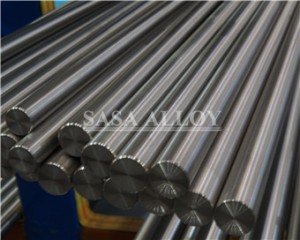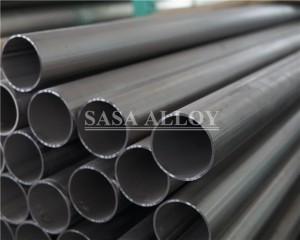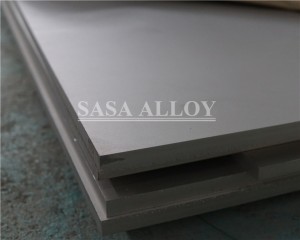Inconel is a family of nickel-chromium-based superalloys known for their exceptional resistance to high temperatures, corrosion, and mechanical stress. These alloys are primarily composed of nickel, with significant amounts of chromium and smaller quantities of other elements such as iron, cobalt, and molybdenum. Inconel alloys are designed to maintain their strength and structural integrity even when exposed to extreme environments, making them suitable for various industrial applications.
Inconel Features
The combination of physical and chemical properties that Inconel possesses are what make it so special. Inconel alloys can withstand elevated temperatures without significant loss of strength or deformation. While materials like steel have a higher melting temperature than nickel, their performance in terms of strength and corrosion resistance begins to deteriorate at elevated temperatures. Inconel, on the other hand, maintains excellent strength properties at high temperatures and forms a protective oxide layer that resists corrosion at high temperatures.Inconel alloys are highly resistant to corrosion, making them useful in environments with exposure to aggressive chemicals, acids, and seawater.
In addition to high temperature performance, Inconel has excellent strength properties at room temperature. Inconel alloys possess excellent strength properties, both at room temperature and elevated temperatures, which is crucial for applications requiring load-bearing capabilities.The high amounts of chromium also give it superb corrosion resistance at room temperatures as well. Several Inconel alloys, such as Inconel 718, are precipitation hardened to increase strength even further.
What is Inconel used for?
Inconel alloys are used in a wide range of applications due to their exceptional properties, particularly their resistance to high temperatures, corrosion, and mechanical stress.Inconel is used in many different industries. One of the most common applications for Inconel alloys are widely used in the aerospace industry for manufacturing components such as turbine blades, exhaust systems, and aircraft engine parts. Fuel nozzles, afterburner rings, and other engine components are commonly made out of Inconel. This is because they perform well in the elevated temperature found during operation. They also resist the risk of corrosion presented by jet fuel and other liquids. Inconel is also often used in rockets and space exploration vessels. Common alloys in the aerospace industry include Inconel 625 and Inconel 718.
The strength of Inconel alloys is generally achieved through a combination of factors, including:
1.Solid Solution Strengthening: Nickel and chromium form a solid solution that increases the strength of the alloy at high temperatures.
2.Precipitation Hardening: Some Inconel alloys are capable of precipitation hardening, a heat treatment process that forms fine particles within the alloy matrix, enhancing its strength.
3.High Nickel Content: The high nickel content in Inconel® alloys contributes to their resistance to corrosion and oxidation, as well as their strength at elevated temperatures.
4.Controlled Grain Structure: Proper heat treatment and processing can result in a controlled grain structure, which contributes to improved mechanical properties.
5.Alloy Additions: Various alloying elements, such as molybdenum, titanium, and aluminum, are added to enhance specific properties like strength, creep resistance, and corrosion resistance.
Post time: Aug-17-2023


